Long-term readers probably know that I’m a big fan of journalist Katsuji Nakazawa’s ”China up close” series of articles in the newspaper Nikkei Asia.
Nakazawa spent seven years in China, partly as bureau chief of Nikkei in Beijing and appears to have access to individuals close to the Chinese leadership. He’s written several books, including “Secrets to Xi Jinping’s 2035 empire”:
Given how much he has helped inform my thinking over the past year, I have re-read his 50 latest articles to understand what he thinks will happen to the Chinese economy in the next decade. Here are my key takeaways from doing that exercise.
Xi Jinping has a red bloodline
Xi Jinping is a “princeling”. He is a child of Communist revolutionary Xi Zhongxun (习仲勋) and a member of the group now commonly called “second-generation reds”.
These second-generation reds were born into families that helped play a part in the Communist revolution. In Xi’s case, his father was a member of the Red Army in the 1930s and 1940s. His father later became the propaganda chief of the People’s Republic after its founding in 1949.
The first few decades of the People’s Republic were tumultuous. Xi’s father was purged by Mao in 1962, accused of being part of an anti-party clique. He had to wait until Mao Zedong’s death in 1976 to be rehabilitated. He fell from grace a second time in 1987 after siding with reformist Hu Yaobang, who was removed from his post of General Secretary that year. After this event, Xi’s father lived the rest of his life in obscurity in southern Guangdong province.
What Xi learnt from his father’s experience is that to maintain power, complete control is necessary. Xi’s father had many enemies. With limited influence, he was not able to avoid becoming a victim of political infighting. According to Nakazawa, Xi thinks he needs to be in complete control - or not be in control at all.
Interestingly, when Xi Jinping stepped up to become the General Secretary of the Communist Party in 2012, he had the full support of the other “second-generation reds” - the other second-generation revolutionaries.
Today, however, Xi has gone beyond his initial power base. Very few of the key party posts are now occupied by second-generation reds. Instead, Xi has installed old friends and colleagues in key positions. Xi can now be seen as a power base upon himself.
Xi is now consolidating his power
And Xi’s power base is stronger than ever. Through a 2012 anti-corruption campaign, he was able to take down many political opponents such as security chief Zhou Yongkang (周永康) and presidential hopeful Bo Xilai (薄熙来).
In stark contrast to other Chinese presidents before him, Xi Jinping seems to have broader ambitions. In 2017, for example, he managed to get his ideology “Xi Jinping Thought on Socialism with Chinese Characteristics for a New Era” enshrined in the party’s constitution. And there is evidence that he might be seeking to stay on as leader even longer than the planned two five-year terms.
The second-generation reds are becoming concerned about Xi’s political style, with a growing personality cult around Xi. But so far, there hasn’t been much backlash against him.
A rare case of opposition has come from former premier Wen Jiabao. Since stepping down in 2012, Wen has written several essays in public newspapers that indirectly criticise the current administration. For example, earlier this year, Wen wrote an article in a Macau newspaper that made indirect references to the traumatic period of the “Cultural Revolution”, which Xi has been reluctant to denounce. Wen’s article was immediately banned on the mainland. A crackdown on companies such as China Evergrande might also be related to the conflict between Wen and Xi.
Nakazawa believes that such crackdowns are likely to continue forever - it’s the only way for Xi to ensure political safety. A source within the party told him “there is no end in sight” to the crackdowns, similar to Stalin’s strategy of “perpetual struggle” described by journalist John Garnault’s essay “Engineers of the Soul”.
After reformist leader Deng Xiaoping came to power in 1978, Mao’s position of Chairman was abolished to prevent dictatorships from recurring within the People’s Republic. Instead, Deng introduced a collective leadership system, with General Secretaries and Premiers rotating out of their positions every ten years.
It looks like Deng’s collective leadership system has now been broken. Nakazawa believes that now that Xi has consolidated power in his hands, he might reinstitute Mao’s former position of “Chairman” after 2022, setting the stage for Xi to become a leader for life.
Xi might stay on until 2035
Xi entered his current role of General Secretary in 2012. He was supposed to serve two five-year terms before leaving office in late 2022. This system of collective leadership ensured checks and balances in the political system.
It now looks like Xi is planning to stay in power even after 2022. The strongest sign of his ambitions is the fact that term limits were removed in 2018. With these limits removed, there is no longer any mechanism for transferring power to the next generation.
And there is no obvious successor to Xi. Before Xi took power, he was groomed for the top job by taking on the position of Vice Chairman of the party’s Central Military Commission in 2010. He was also Vice President for the five years before becoming President. But this time around, there is no successor in sight.
Nakazawa proposes a few other signs that Xi might be planning to stay on as leader even after 2022:
After removing term limits in 2018, party officials and state media began to refer to Xi as the “people’s leader”. Historically, this title had only been used for Mao Zedong - not for General Secretaries.
From 2017 onwards, the military has called Xi “Chairman” instead of the usual term “commander”, used since Deng Xiaoping came to power in 1978. By using the term “Chairman”, the PLA essentially pledges alliance to Xi alone - and not to the party itself.
Xi’s long-time ally Wang Qishan stayed on after the customary retirement age, meaning that old rules are not being obeyed.
From September 2021, primary schools across China began teaching “Xi Jinping Thought on Socialism with Chinese Characteristics for a New Era”. The word “thought” is unique in communist terminology because it is considered higher than “theory”. Before Xi, only Mao had his name attached to such “thought”. And importantly, Nakazawa believes that it would not make sense for Xi to retire just one year before incorporating “Xi Thought” into China’s school textbooks.
So if Xi stays on even after 2022, how long can we expect him to rule? Most evidence points to the year 2035 as the target year Xi’s resignation.
In 2017, Xi made a speech where he declared that China will realise socialist modernisation by 2035. In communist terminology, this essentially means that China will overtake the United States to become the number 1 economy. Many recent publications have also set 2035 as the target year for China’s ultra-long economic outlook.
At a diplomatic mission to Alaska, the top foreign policy official Yang Jiechi (杨洁篪) mentioned 2035 twice during his opening statement, suggesting that this year holds special significance to the current top leadership.
Why Xi has chosen 2035 is unclear. By that year, Xi will turn 83 - the same age as Mao in the year of his death. So perhaps Xi has tried to make a realistic assessment of how long he will be able to rule the country, given his already-advanced age.
Incidentally, 2035 is exactly 100 years after Mao Zedong took leadership of the Communist Party and its military. And centenaries hold a special significance to the party, as we have seen in the past.
Xi is breaking with Deng-era reforms
Given that Xi is most likely to stay on as a leader, his ideology and plans will have a massive impact on the future of the Chinese economy.
Xi has often expressed a preference for Mao-era policies. For example, in a break with the Deng-era when opening-up reform (改革开放) was being emphasised, Xi has now said that:
“The 30-year historical period after reform and opening-up cannot be used to deny the 30-year historical period before reform and opening-up.”
Xi has been reluctant to denounce the Great Leap Forward and the Cultural Revolution, a tumultuous period of weak productivity growth before the growth miracle of the post-1980s. Searching for the “Cultural Revolution” trending discussion thread on Baidu now yields zero results, suggesting censorship of this sensitive topic.
Others in the leadership are equally cautious about criticising Mao. Earlier this year, the head of the party’s propaganda arm Zhuang Rongwen called the span from 1949 to 1976 “the period during which great achievements were made”. Such statements cannot be made without tacit approval from the top leadership.
But it still seems unlikely that Xi will return to Mao-era policies.
Nakazawa believes that the purpose of emphasising the importance of the 1949-1979 period might be to downplay Deng’s collective leadership system. Since Xi is now deviating from the checks and balances of Deng’s system, downplaying it will thus provide Xi with greater legitimacy.
A critical dimension in which Xi is now breaking with the Deng-era reforms is the change in China’s long-term targets. Deng Xiaoping had previously set the year 2049 when China would become:
“A prosperous, strong, democratic, culturally advanced and harmonious society”
Xi, on the other hand, has stated that by 2035, China should become:
“Economic might, scientific and technological capability and comprehensive national power”
These statements are quite different, focusing on state-level strength rather than income per capita.
China’s recent aggressive foreign policy stance - so-called Wolf Warrior Diplomacy - is another break from Deng era-reforms. Deng Xiaoping believed in concealing your strength and biding your time (韬光养晦). This strategy is now a thing of the past - with a greater focus on power projection towards the rest of the world.
It’s also worth mentioning that China’s latest five-year plan omitted an annual growth target. All previous five-year plans since Deng Xiaoping took over as a paramount leader in 1978 had included such growth targets. The Communist Party leadership may not care about economic growth as much as it once did.
The Common Prosperity Program
In an August 2021 speech, Xi outlined his new political goal of “common prosperity”, mentioning the words 15 times. This new campaign is meant to correct the nation’s income inequality. Specific measures include: expanding the size of the middle-income group, increasing earnings of the low-income group and most importantly - “adjusting excessive incomes”.
Deng Xiaoping had emphasised the importance of letting some people get rich first. So the new goal of adjusting excessive incomes is another clear break from the Deng era.
In a meeting planned for 8-11 November 2021, Xi will publish a document called “the third resolution”. The only two other party officials who have published resolutions were Mao Zedong and Deng Xiaoping. This seems to suggest that we are now entering a new period quite distinct from the two periods during Mao and Deng, both of which had massive impacts on the nation’s economic policies. Therefore, we can divide China’s economic history into three periods: Mao’s, Deng’s, and now Xi’s.
The strongest supporter of the new common prosperity program is the Communist Party’s leftist faction, which views income disparities as the greatest threat to the nation and Communist Party rule. So if they support the program, it seems likely that the “common prosperity” program will shift China on a leftwards path.
Xi’s power base, the Zhejiang province, has been chosen as the pilot area for the new common prosperity agenda. Once the model has been shown to work in Zhejiang, it will be rolled out nationwide. So keep track of what happens in the Zhejiang province - because this will be a precursor of what will happen in the rest of the country in the next decade.
In specific terms, these are some of the new initiatives that have been launched to achieve the new goal of “common prosperity”:
Property reforms: A crackdown on specific private property companies such as China Evergrande. In addition, a property tax has been proposed, first in several pilot cities and with a delayed roll-out nationwide.
Tutoring companies: In the summer of 2021, the government essentially prohibited private participation in the tutoring industry. The Central Committee banned all homework for primary 1-2 and capped the amount of homework for older students. This might have been a populist move to respond to growing complaints from parents, but according to Nakazawa, it also strengthens party control over the private education sector.
Media and gaming businesses: A state-media article called online games “spiritual opium”, though the wording was later deleted. The language used to attack the sector is somewhat similar to that used during the Yan’an rectification movement in the early days of the Cultural Revolution.
Anti-trust regulation: M&A projects are now scrutinised more carefully, and anti-competitive practices such as Alibaba forcing merchants to pick sides are now being cracked down upon.
The future role of the private sector is unclear
A key part of the “common prosperity” program will be to rectify income disparities. Nakazawa believes that private companies will be the main target of this drive. This is how he describes the impact of the program on the private sector:
“Zhejiang and its private companies will turn red toward 2035 and stand as trophies for socialism in the Xi era.”
If this prediction is accurate, then it is somewhat unclear what the future role of the private sector will be.
The crackdown on private companies in the technology sector accelerated from November 2020 onwards. Alibaba’s founder Jack Ma was summoned by Chinese authorities for questioning, and state media wrote in a WeChat Post:
“Don't speak thoughtlessly, don't do as you please, people can't act on their free will… There is a price behind everything. If you don't have capital, don't do whatever you want."
The reason why Jack Ma was targeted in particular is unclear. A few theories:
Jack Ma has a close relationship with former President Jiang Zemin (江泽民) and former Vice President Zeng Qinghong (曾庆红). It is said that people close to Jiang Zemin’s Shanghai faction have significant shareholdings in Alibaba’s associate Ant Group. Alibaba shareholders such as China Development Bank head Chen Yuan (陈元) have also been targeted through symbolic measures.
Payment subsidiary Ant Group might have stepped over a red line by posing a threat to the financial system through what could be seen as excessive consumer lending.
Alibaba’s consumer data and media empire might have threatened the Communist Party’s control of prevailing narratives. Through its media properties South China Morning Post, Weibo, iQiyi and other smaller media companies, Alibaba could block information that’s unfavourable to itself. And censorship had taken place in numerous instances - posing a direct threat to Communist Party rule. The fact that a state-owned enterprise has bid for Alibaba’s South China Morning Post supports this theory.
Two separate meetings presided by Xi in early December 2020 called for 1) strengthened antitrust efforts and 2) “the prevention of disorderly expansion of capital”.
Nakazawa believes that “the prevention of disorderly expansion of capital” means that the private sector will lose power compared to state-owned enterprises. Officials believe that capital has to be directed by the Communist Party and that greater party guidance will be needed in private companies. That ties in with the introduction of so-called Communist Party Committees in private companies back in September 2020, which in practice have the power to control company boards.
In subsequent speeches, Xi justified the need for antitrust actions by using the word “political security”. It seems to suggest that the recent antitrust actions are partly used to preserve party rule. As described by Nakazawa:
“The crackdown on Alibaba signals that Xi Jinping is extending the tactics used in the government anti-corruption campaign to private companies.”
The timing of this campaign might be to tighten Xi’s grip on the business community in the run-up to the 2022 national congress, where he will seek a third term.
Xi might fear that company resources might be used against him or others in the top leadership. They want private companies to support Xi’s political agenda. Contributions to “social initiatives” as we saw with Tencent’s and Alibaba’s CNY 100 billion “investments” earlier this year might be a way to compel these companies to step in line.
Much of the new regulation has been co-signed by the Communist Party’s General Office in Zhongnanhai - an office under the direct control of Xi Jinping. This is the first time in the history of the capital markets this has happened. Historically, all regulations had been issued by relevant government authorities - not the Communist Party. Examples of regulations co-signed by the General Office include the Didi document banning it from the app store following its IPO and the crackdown on tutoring companies and the online gaming industry.
Meanwhile, the government is boosting its state-owned enterprises. Nakazawa believes that the latest series of moves in the Xi era seems to be aimed at returning to a socialist system, though one with a different shape than in the past.
It’s hard to say what will happen in the next 13-14 years as the Communist Party tries to achieve its “common prosperity” agenda. The party’s Central Commission for Discipline Inspection has recently announced a widespread campaign to root out inappropriate government-business ties - targeting 25,000 officials. Who knows what will happen to the companies that have benefitted from political connections in the past. And who knows what that implies for the broader private sector.
Personal reflections
Katsuji Nakazawa is an expert on top-level Chinese politics. And in some instances, I can only trust his judgment when forming my own opinion.
But what is clear to me is that high-level politics can explain many recent events in the private sector. Companies such as China Evergrande and Alibaba might have been targeted due to their connections to former leaders within the Communist Party.
Therefore, any analysis of a private company in China requires an assessment of where it stands politically.
Will China become socialist again? I think it’s clear at this point that the country is moving in a leftward direction. But at the same time, I doubt that that Xi wants full state ownership across the board. His highest priority is to maintain power and stability.
Instead, we will likely see a system where the state grooms national champions in each industry vertical. Each of these companies will support the party’s agenda. Examples of such companies in today’s China might be Geely and CATL, which enjoy strong connections to the current party leadership.
Whether they are state-owned or not may ultimately not matter. The critical question is whether they help Xi maintain power and control and help the country achieve its longer-term target of socialist modernisation.
Thanks for reading!
Sign up for over 20 deep-dive reports on Asian stocks per year and full disclosure of my personal portfolio. I will be happy to see you join!



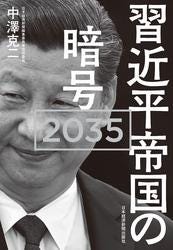
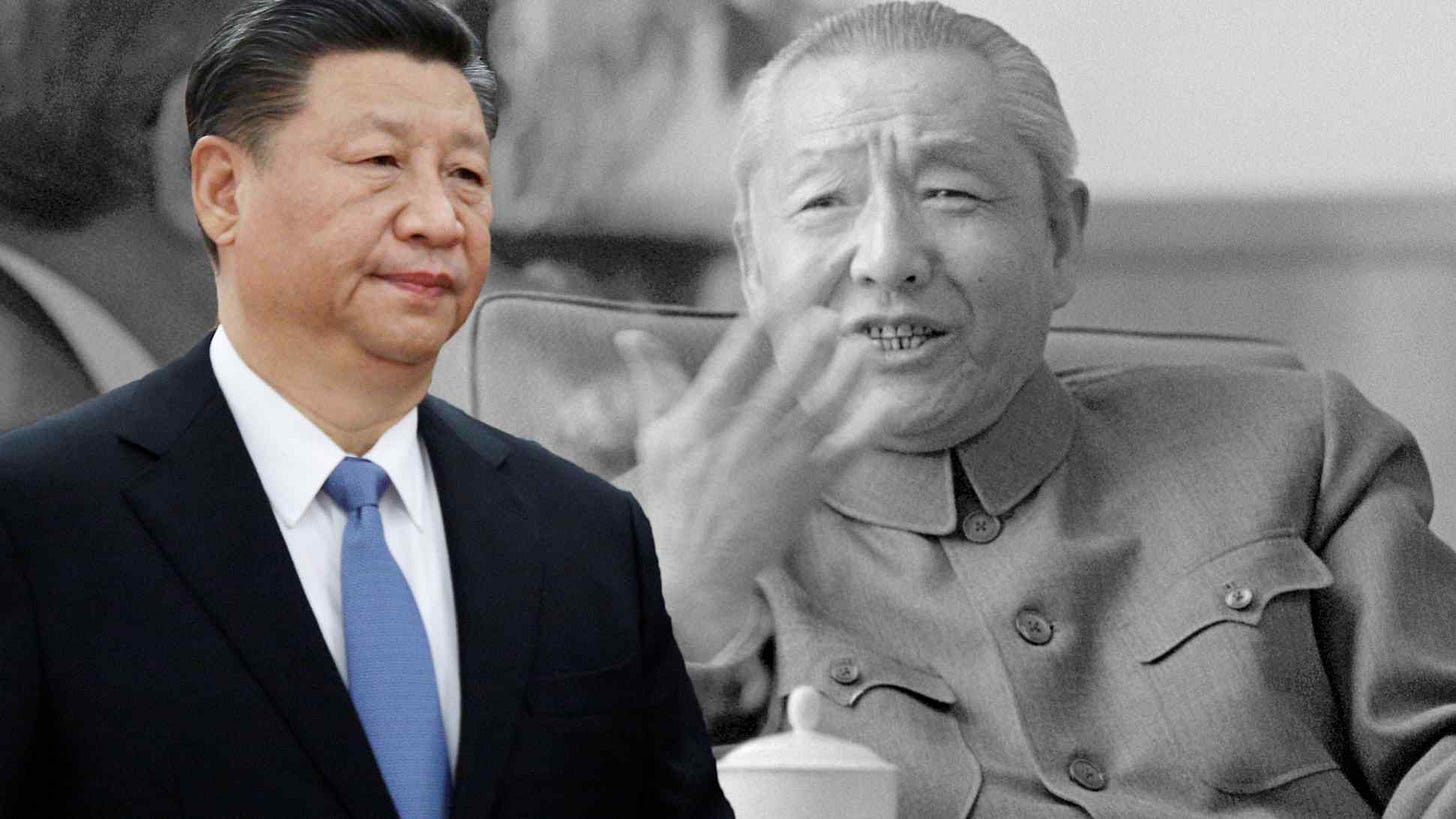


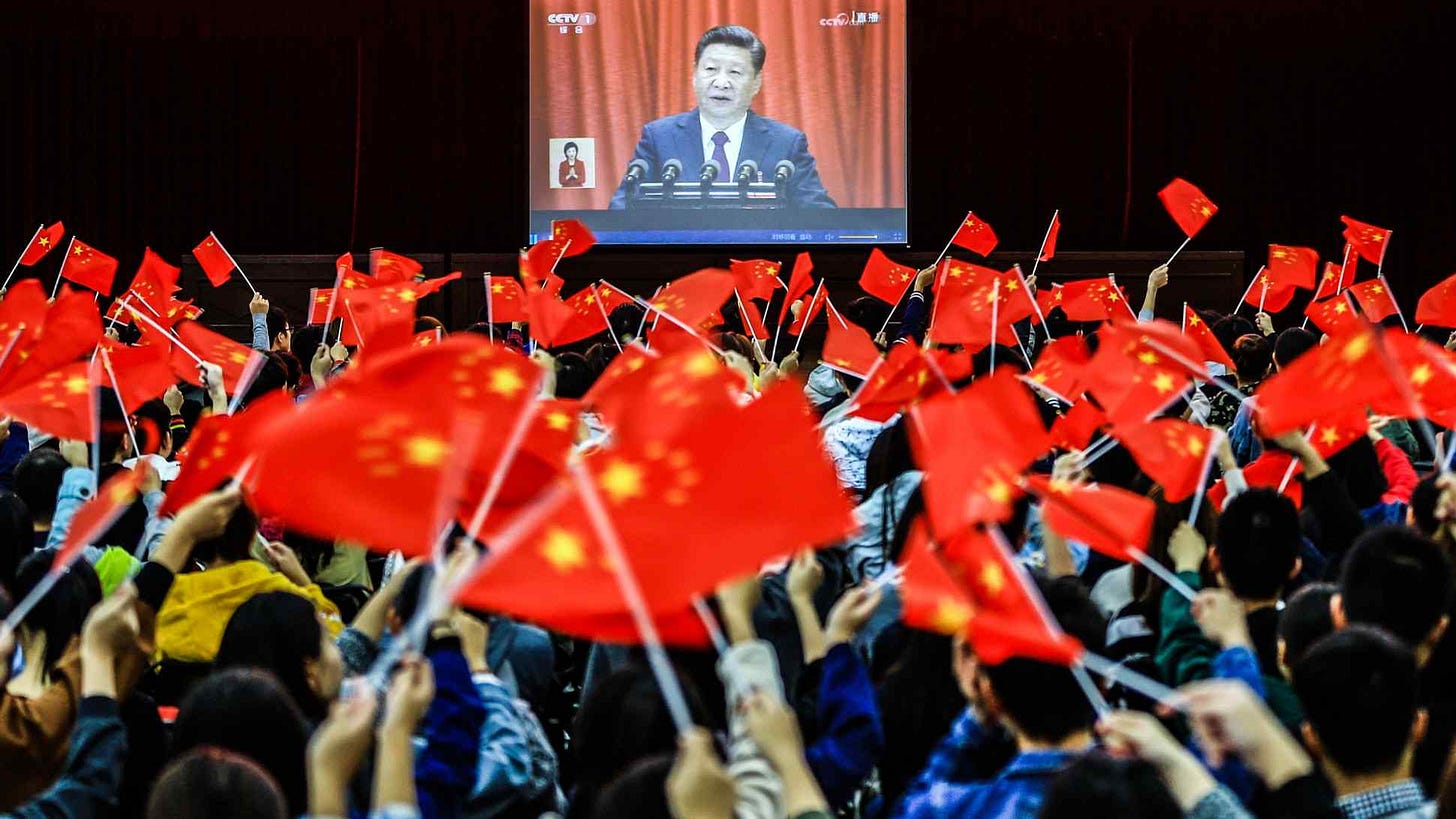
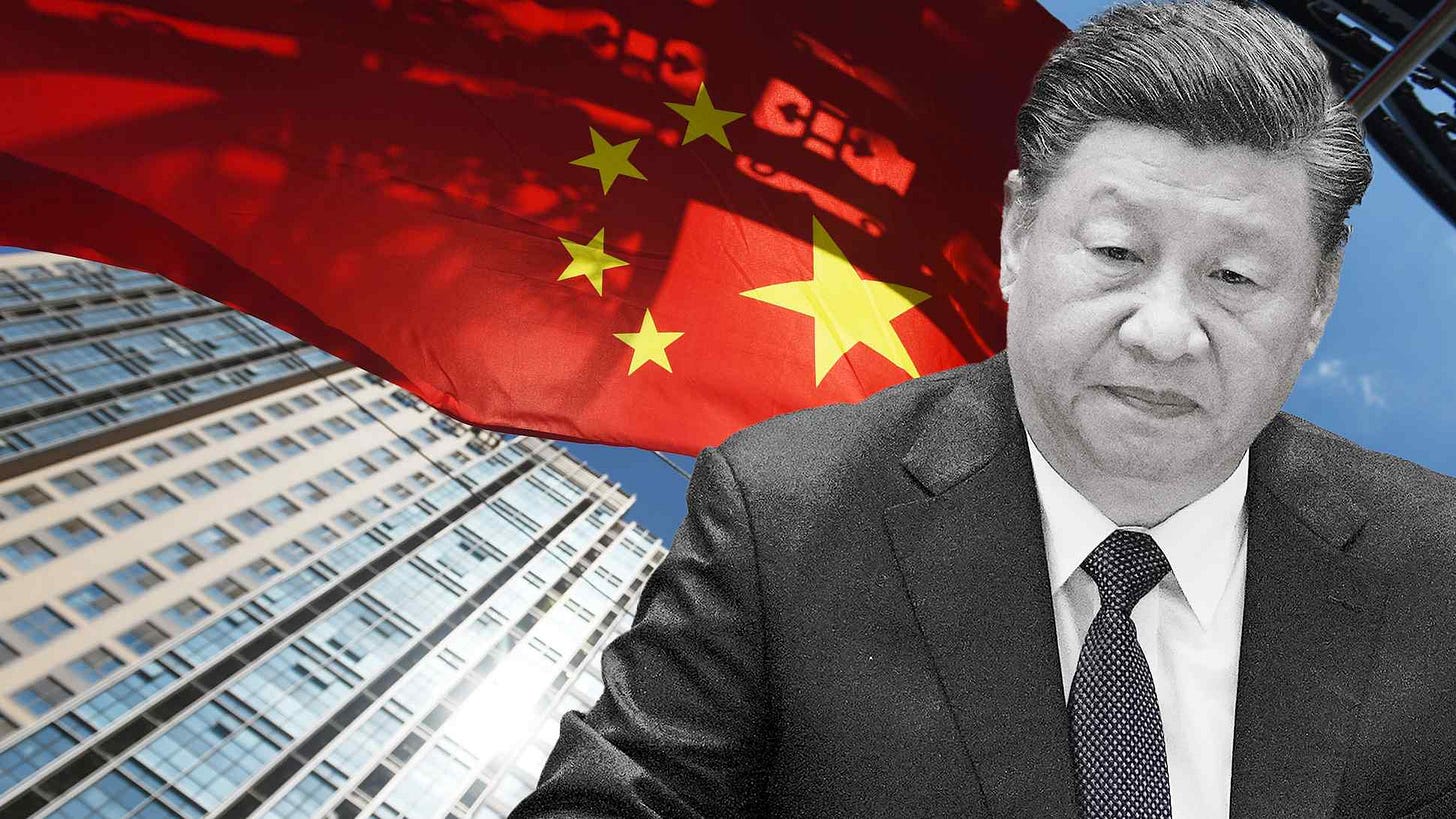
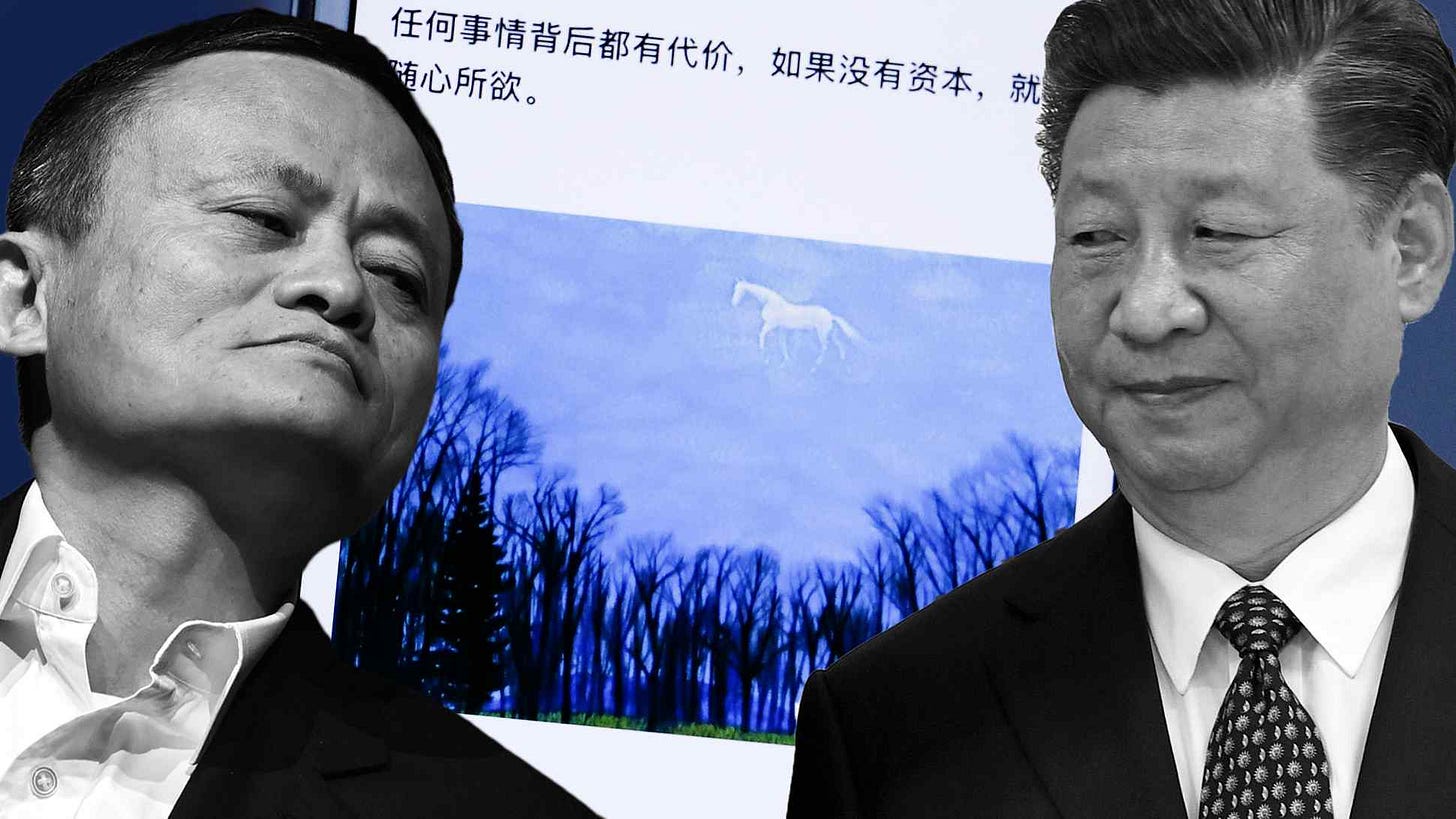
Hi. This was great.
In the section "Xi is breaking with Deng-era reforms" in the last paragraph, did you mean to write committed or Omitted, because the rest of the paragraph seems to point towards the 5-year strategy not having a growth target anymore.
Hey Michael. Really enjoyed this. Curious if you think companies that have already been penalized — highlighting they are likely not well regarded by the current party leadership — are too risky to invest in? Would you ever touch something like BABA or Tencent?